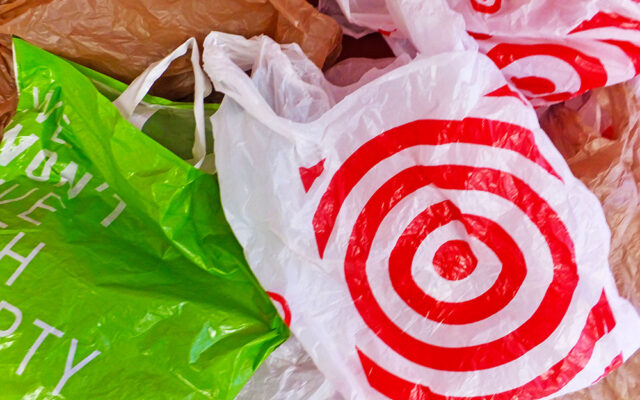
What shoppers need to know about the plastic bag ban
By Sam Schipani, Bangor Daily News Staff
Grocery shopping in Maine is about to look a little different.
After more than a year of delay, Maine’s statewide single-use plastic bag ban will go into effect on July 1. The Maine Legislature passed a ban on plastic bags in 2019 and it was initially scheduled to go into effect in April 2020. However due to the coronavirus pandemic, it was twice delayed — first, due to sanitation concerns, and then again due to pandemic-related supply chain disruptions on packing supplies.
With the ban comes additional changes including what bags will be available and how much you’ll have to pay to get them. What does that mean for shoppers, though? Here’s what you need to know.
Which bags count?
After July 1, stores and restaurants will not be allowed to provide single-use plastic bags, which are defined in part by how thick they are.
“The law bans single-use plastic carry-out bags, which includes any thin-film plastic bags less than 4 mils [thousandths of an inch] thick and also requires that paper carry-out bags designed to carry 8 pounds or more contain at least 20 percent post-consumer recycled content,” said David Madore, deputy commissioner of the Maine Department of Environmental Protection.
Some single-use plastic bags are exempt from the new law, including plastic bags provided by pharmacies for carrying medication, produce bags, deli bags, bakery bags, bags used to wrap flowers or potted plants, garment bags for dry cleaning, bags used for vehicle tires, bags used to carry fish and insects from pet stores and bags used to transport caustic chemicals.
Aside from the exemptions, all carry-out bags made available by a retailer to customers at the point-of-sale must either be a reusable bag (thicker plastic bags meet this requirement) or a recycled paper bag, no matter whether the establishment is a store or restaurant or a temporary food truck or farmers market stand. Additionally, establishments must charge a fee of at least 5-cents per carry-out bag allowed under the new law, both paper and plastic.
“The intent of this language is to ensure that fees are charged for the thicker [plastic bags] that look a lot like the single-use plastic carry-out bags we are all familiar with, but will last much longer due to the thicker film,” Madore said. “The fee is meant to encourage people to think of those thick plastic film bags as reusable, and to reuse them to avoid fees for new bags.”
Establishments including hunger relief organizations like food pantries and soup kitchens as well as stores with “less than 2 percent of retail sales attributed to the sale of food and less than 10,000 square feet of retail area,” are exempt from charging the 5-cent bag fee.
New recycling stations
The bill provides yet another perk for the eco-conscious: Retail establishments that provide exempted single-use plastic bags, such as produce bags, must also serve as a public plastic bag recycling drop-off location.
Municipal recycling programs usually do not accept thin, flexible plastics such as plastic bags and plastic film as the material can clog up machinery used to sort recyclable items. However, plastic bags and film are recyclable.
“The plastic bags and film collected by retailers are not sent to the type of recycling facilities designed to sort our typical residential and commercial recyclables, but are typically combined with the ‘back of the house’ plastic bags and film such as case overwrap and sent directly to a processor that specifically recycles plastic bags and film,” Madore said.
The new recycling stations aren’t just for plastic shopping bags, either. You can also put in plastic bubble mailers with the paper label cut out, air pillows that come in packages, bread bags, mattress bags, furniture wrap, case over-wrap found on diapers, toilet paper and similar products, dry cleaning bags, newspaper sleeves, ice bags, pellet bags and more. Thicker plastic bags — the kind that are permitted by the law and cost five cents apiece — can also be recycled at the end of their lives (Madore said that they should be able to withstand 75 uses).
All recyclable plastic bags should be clean, empty and dry when dropped off at these recycling locations. Some plastics require a bit of preparation before being placed in the recycling bin. For example, when recycling wood pellet bags, the top of the bag should be cut off completely, and the bag should be turned inside out and shaken thoroughly to ensure that the bag is empty. Plastic bags used to hold bread or other food items may also need to be shaken out to remove any crumbs. Plastic mailers should have the paper labels cut out, and air pillows should be deflated.
“If needed, a small amount of water may be shaken inside the bag to clean any stubborn material out, then prop the bag open to dry out,” Madore said.
Note, though, that any film or bags labeled as compostable, pre-washed salad mix bags, and frozen food bags are not accepted.
What are your options?
Shoppers will now have a choice of paying for available bags or bringing their own reusable bags. It might take a little getting used to though.
Madore said that the new laws are sure to come with their own adjustment period for shoppers, as they work to remember their reusable bags every time they go shopping.
“If you forget your bags and don’t want to take any new ones home with you for [five] cents apiece, see if the store has any spare cardboard boxes they might load your groceries in,” Madore said. “You can reuse the box or recycle it — or both.”